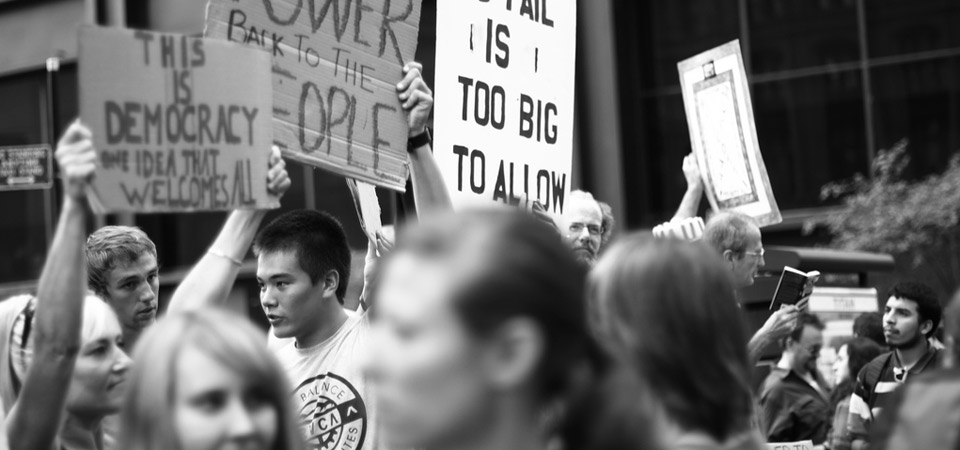- Home |
- Search Results |
- Occupy by Noam Chomsky

Concentration of wealth yields concentration of political power. And concentration of political power gives rise to legislation that increases and accelerates the cycle. The legislation, essentially bipartisan, drives new fiscal policies, tax changes, also rules of corporate governance, and deregulation. Alongside of this began the very sharp rise in the costs of elections, which drives the political parties even deeper than before into the pockets of the corporate sector.
The parties dissolved, essentially, in many ways. It used to be that if a person in Congress hoped for a position such as a committee chair or some position of responsibility, he or she got it mainly through seniority and service. Within a couple of years, they started having to put money into the party coffers in order to get ahead, a topic studied mainly by Tom Ferguson. That just drove the whole system even deeper into the pockets of the corporate sector, increasingly the financial sector.
This cycle resulted in a tremendous concentration of wealth, mainly in the top tenth of one percent of the population. Meanwhile, for the general population, it began to open a period of stagnation or even decline for the majority. People got by, but by artificial means such as longer working hours, high rates of borrowing and debt, and reliance on asset inflation like the recent housing bubble. Pretty soon those working hours were much higher in the United States than in other industrial countries like Japan and those in Europe. So there was a period of stagnation and decline for the majority that continued alongside a period of sharp concentration of wealth. The political system began to dissolve.
There has always been a gap between public policy and public will, but it just grew astronomically. You can see it right now, in fact.
The big topic in Washington that everyone concentrates on is the deficit. For the public, correctly, the deficit is not regarded as much of an issue. And it isn’t really much of an issue. The issue is joblessness, not the deficit. There’s a deficit commission but there’s no joblessness commission. As far as the deficit is concerned, the public has opinions. Take a look at the polls. The public overwhelmingly supports higher taxes on the wealthy, which have declined sharply in this period of stagnation and decline—higher taxes on the wealthy and preserve the limited social benefits.
The outcome of the deficit commission is probably going to be the opposite. Either they’ll reach an agreement, which will be the opposite of what the public wants, or else it will go into a kind of automatic procedure that is going to have those effects. Actually, that’s something that has to be dealt with very quickly.
The deficit commission is going to come up with its decision in a couple of weeks. The Occupy movements could provide a mass base for trying to avert what amounts to a dagger pointed at the heart of the country. It could have very negative effects. It’s an immediate task.